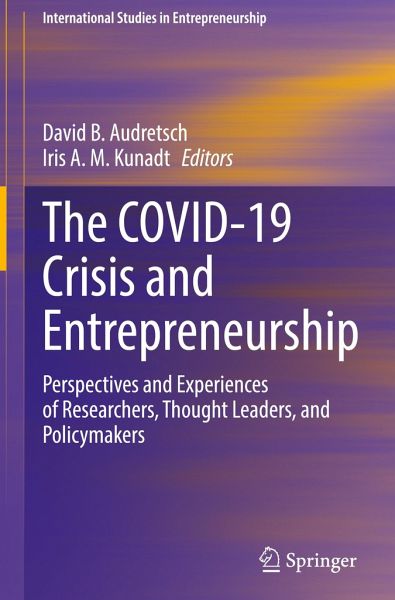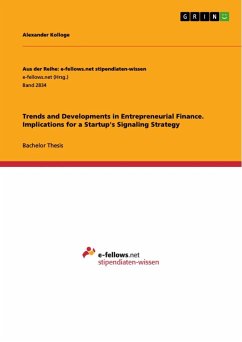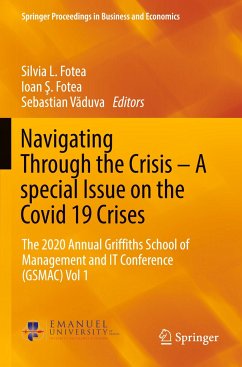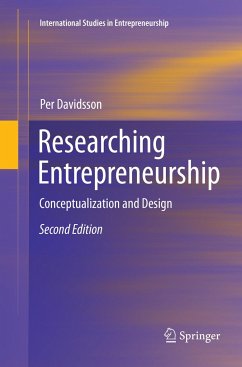
The COVID-19 Crisis and Entrepreneurship
Perspectives and Experiences of Researchers, Thought Leaders, and Policymakers
Herausgegeben: Audretsch, David B.; Kunadt, Iris A. M.

PAYBACK Punkte
0 °P sammeln!
2020 introduced a global pandemic that led to global economic, social, and regional lockdowns affecting public life in ways never been imagined before. This book takes a look at how researchers from fields encompassing economics and political science, along with thought leaders in business and economic policy, experienced the crises themselves as experts in their field, as well as from a personal viewpoint. Most importantly, however, it looks into the future how entrepreneurship and economic policies may change and positively influence the societies and the economy after the pandemic. Keeping ...
2020 introduced a global pandemic that led to global economic, social, and regional lockdowns affecting public life in ways never been imagined before. This book takes a look at how researchers from fields encompassing economics and political science, along with thought leaders in business and economic policy, experienced the crises themselves as experts in their field, as well as from a personal viewpoint. Most importantly, however, it looks into the future how entrepreneurship and economic policies may change and positively influence the societies and the economy after the pandemic. Keeping in mind that, with climate change and the digital revolution, change was already around the corner and inevitable, renowned economic and policy experts are asked for their assessment of future roads and feasible economic policies. The book follows the chronology of the pandemic and focuses on leading researchers and thought leaders in public policy and business. An introduction to each chapter describes the context particular to the contributing author when the pandemic struck and their own reactions, experiences, and insights triggered by the emerging pandemic.














